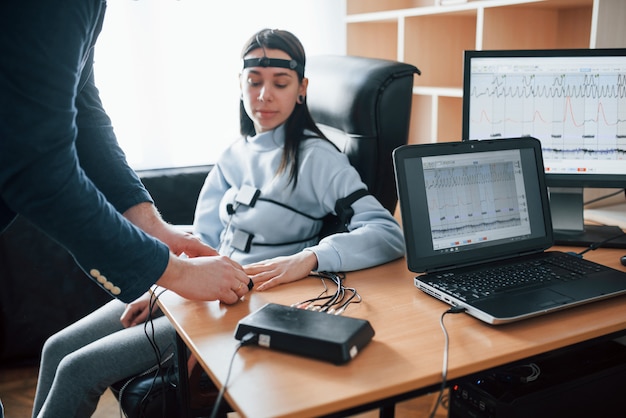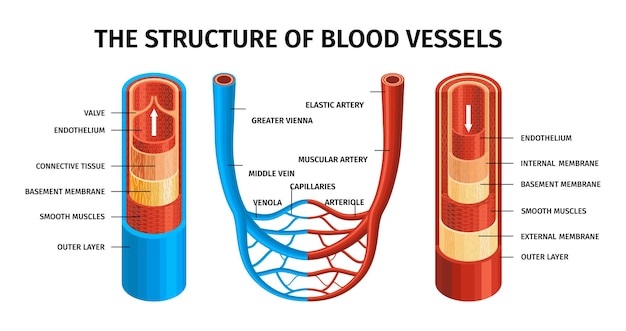Heart disease remains the leading cause of death worldwide, yet many cases go undetected until a serious event occurs. Northwell Health emphasizes the critical role of routine heart checkups in catching early warning signs—often before symptoms appear. With advancements in cardiac diagnostics, tests like electrocardiograms (EKGs) and angiograms are now vital tools in assessing heart health and preventing life-threatening conditions.
One of the most dangerous aspects of heart disease is that it can develop silently. Many individuals feel perfectly healthy while underlying issues like high blood pressure, plaque buildup in arteries, or irregular heart rhythms go unnoticed. According to health experts, early detection through regular screenings can significantly reduce the risk of heart attacks, strokes, and other cardiovascular emergencies.
This is especially true for adults over 45, as the risk of heart-related problems increases with age. Hormonal changes, sedentary lifestyles, poor diet, and stress contribute to rising cardiovascular risks—particularly in women post-menopause. Routine heart assessments help identify these risks early, allowing for timely intervention.

Not all heart tests are necessary for everyone, but certain screenings are recommended based on age, family history, and risk factors. Here are some of the most important diagnostic tools used in preventive cardiology:
An electrocardiogram is a quick, non-invasive test that measures the electrical activity of the heart. It can detect irregular heart rhythms (arrhythmias), signs of a previous heart attack, or evidence of heart strain. EKGs are often part of routine physical exams for adults over 40 or those with a family history of heart disease.
The test takes only a few minutes. Electrodes are placed on the chest, arms, and legs to record the heart’s electrical signals. While it doesn’t predict future heart attacks on its own, it provides crucial baseline data for cardiologists.
An echocardiogram uses ultrasound waves to create detailed images of the heart’s structure and function. It shows how well the heart chambers and valves are working and can identify conditions like heart valve disease or weakened heart muscle. This test is often recommended if an EKG shows abnormalities or if a patient has symptoms like shortness of breath or chest pain.
A stress test evaluates how the heart performs under physical exertion. Patients walk on a treadmill or receive medication that simulates exercise while their heart rate, blood pressure, and EKG are monitored. This test helps uncover blockages in coronary arteries that may not be visible at rest. It’s particularly useful for individuals with risk factors like diabetes, high cholesterol, or a history of smoking.

Considered the gold standard for diagnosing coronary artery disease, an angiogram is a more advanced imaging test. A contrast dye is injected into the heart’s blood vessels through a thin catheter, usually inserted in the groin or wrist. X-ray images then reveal any blockages or narrowing in the arteries.
While it’s an invasive procedure, it’s highly accurate and often performed when other tests suggest significant heart disease. It can also guide treatment decisions, such as whether a stent or bypass surgery is needed.
The American Heart Association recommends that most adults begin cardiovascular risk assessments at age 20, with screenings repeated every 4–6 years. However, more frequent evaluations are advised for those with:
Women over 45 should pay special attention to heart health, especially if experiencing menopause-related changes. Hormonal shifts can lead to increased blood pressure and cholesterol, raising cardiovascular risk.
Beyond testing, heart health depends on lifestyle choices. A balanced diet rich in fruits, vegetables, whole grains, and lean proteins—combined with regular physical activity—can dramatically reduce the risk of heart disease. Managing stress, avoiding tobacco, and limiting alcohol intake are also key components of a heart-healthy life.
Northwell Health and other medical institutions stress that awareness and early action are the most powerful tools against heart disease. Even if you feel fine, don’t wait for symptoms to appear. A simple checkup could detect a problem early—giving you the best chance for effective treatment and long-term wellness.
Heart disease doesn’t have to be inevitable. With routine screenings and healthy lifestyle choices, most cardiovascular conditions can be managed or even prevented. Talk to your healthcare provider about which heart tests are right for you based on your age, health history, and risk factors.
Your heart works tirelessly for you—make sure you’re doing everything you can to protect it.

Health

Health

Health

Health

Health

Health

Health

Health

Health

Health

Health

Health

Health

Fitness

Health

Health